 |
| David Hockney |
DAVID HOCKNEY
THE METROPOLITAN MUSEUM OF ART
For nearly 60 years, David Hockney (British, born 1937) has pursued a singular career with a love for painting and its intrinsic challenges. A major retrospective at The Metropolitan Museum of Art—the show’s only North American venue, opening November 27, 2017—honors the artist in the year of his 80th birthday by presenting his most iconic works and key moments of his career from 1960 to the present. Working in a wide range of media with equal measures of wit and intelligence, Hockney, has examined, probed, and questioned how to capture the perceived world of movement, space, and time in two dimensions. The exhibition David Hockney will offer a grand overview of the artist’s achievements across all media, including painting, drawing, photography, and video. From his early engagement with modernist abstraction and mid-career experiments with illusion and realism, to his most recent, jewel-toned landscapes, Hockney has consistently explored the nature of perception and representation with both intellectual rigor and sheer delight in the act of looking.
Born in West Yorkshire, where he attended the local Bradford School of Art, Hockney moved to London in 1959 to study at the Royal College of Art. His career is distinguished as much by early successes as by his willingness to flaunt conventions both societal and artistic. Hockney’s works from the 1960s brazenly reference homoerotic subject matter, from Walt Whitman to Physique Pictorial muscle magazines, while his dedication to figuration throughout his career runs against the grain of predominant art world trends on both sides of the Atlantic.
Many fine examples of Hockney’s work from California in the late 1960s and early 1970s, as well as his double portraits from New York, London, and Los Angeles, show the artist’s interest in the tension that exists in social relationships and the difficulty of depicting transparent material such as glass and water. By the late 1970s and early 1980s, Hockney turned to a brightly hued palette and fractured, cubistic perspective that mirrors both his interest in Pablo Picasso and his own experiments with Polaroid photography. In recent decades, Hockney has ventured outdoors to paint the changeable landscapes of his native Yorkshire across the seasons, while simultaneously returning to the study of figures in social groupings. Keenly interested in scientific innovations in the aid of art, Hockney recently experimented with an old technology: he created a series of portrait drawings using a camera lucida, first employed by artists in the Renaissance to render one-point perspective. He has also always embraced new technologies, including the possibilities for colorful composition offered by applications on the iPhone and iPad. Examples of the artist’s experiments in that medium will be included in the galleries. The exhibition ends with his most recent, near neon-toned landscapes, painted in the last three years in Southern California, where he returned to live in 2013. The Met presentation marks the first time the series will be exhibited publicly in the United States. Even to the most committed follower of Hockney’s art, the unprecedented unification of his renowned early works with the newest, will be revelatory.
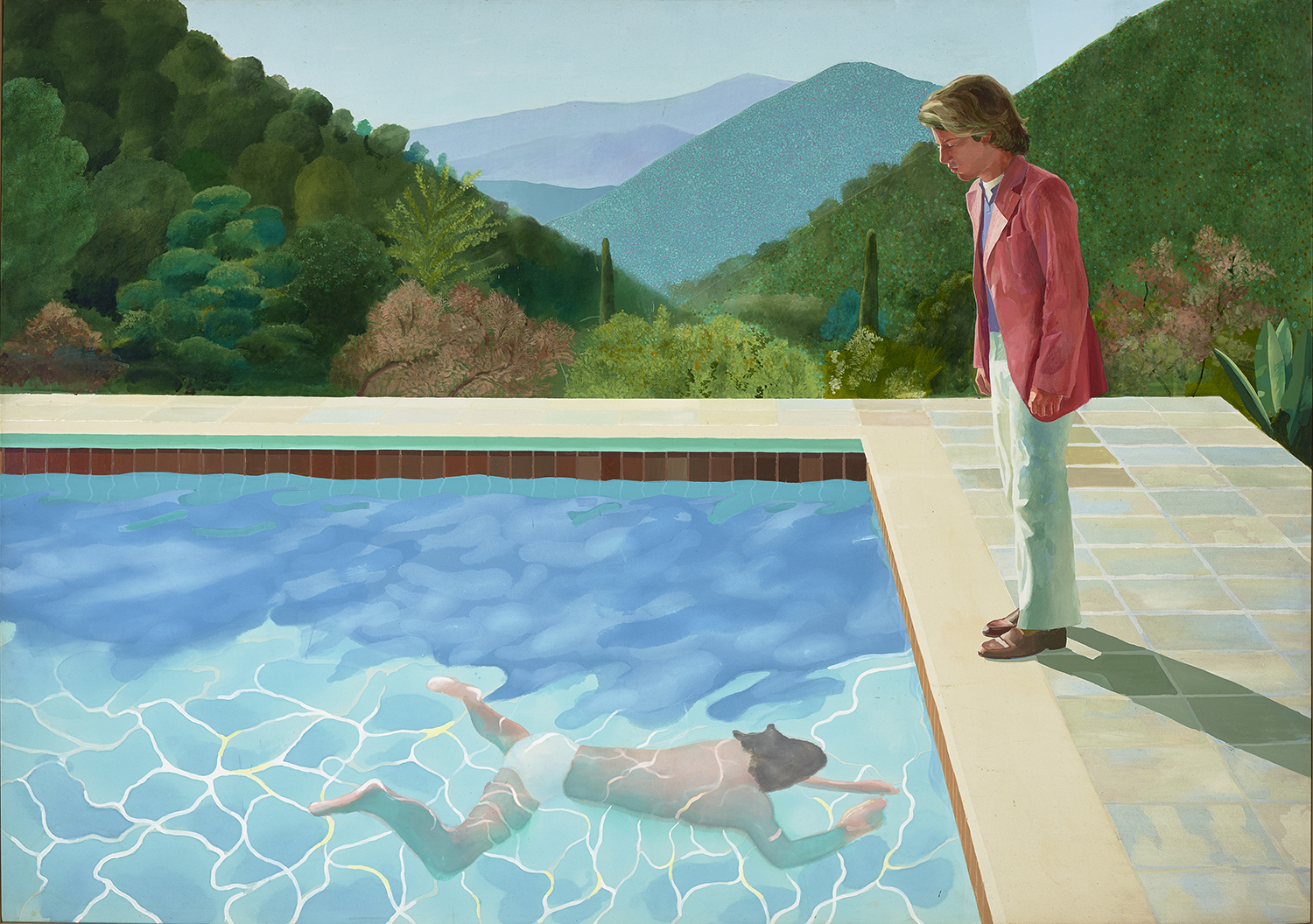
Portrait of an Artist (Pool with Two Figures)
1972
Acrylic on canvas
The Lewis Collection
© David Hockney, Photo Credit: Art Gallery of New South Wales / Jenni Carter
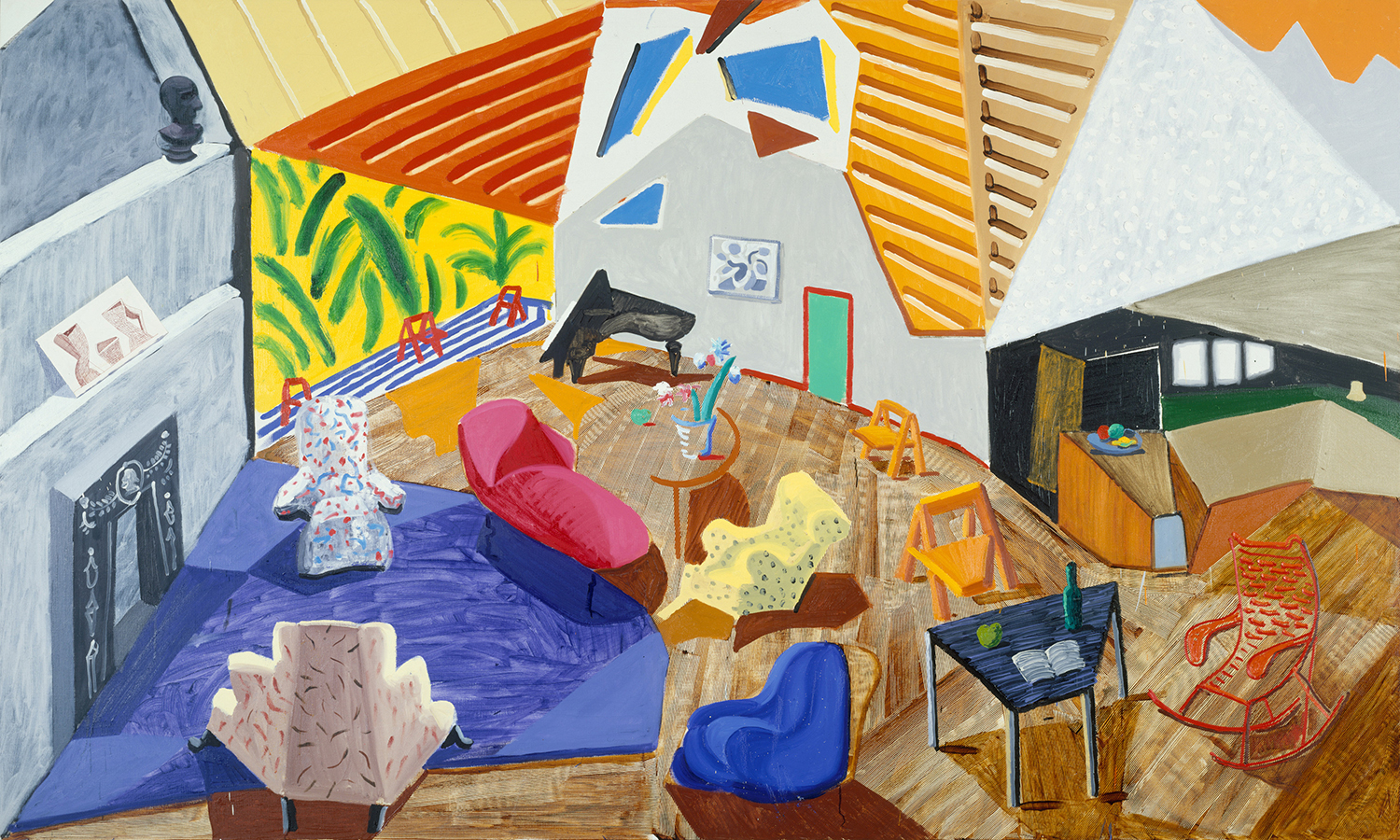 David Hockney
David Hockney
Large Interior, Los Angeles
1988
Oil, ink on cut-and-pasted paper, on canvas
The Metropolitan Museum of Art, New York. Purchase, Natasha Gelman Gift, in honor of William S. Lieberman, 1989 (1989.279)
© David Hockney
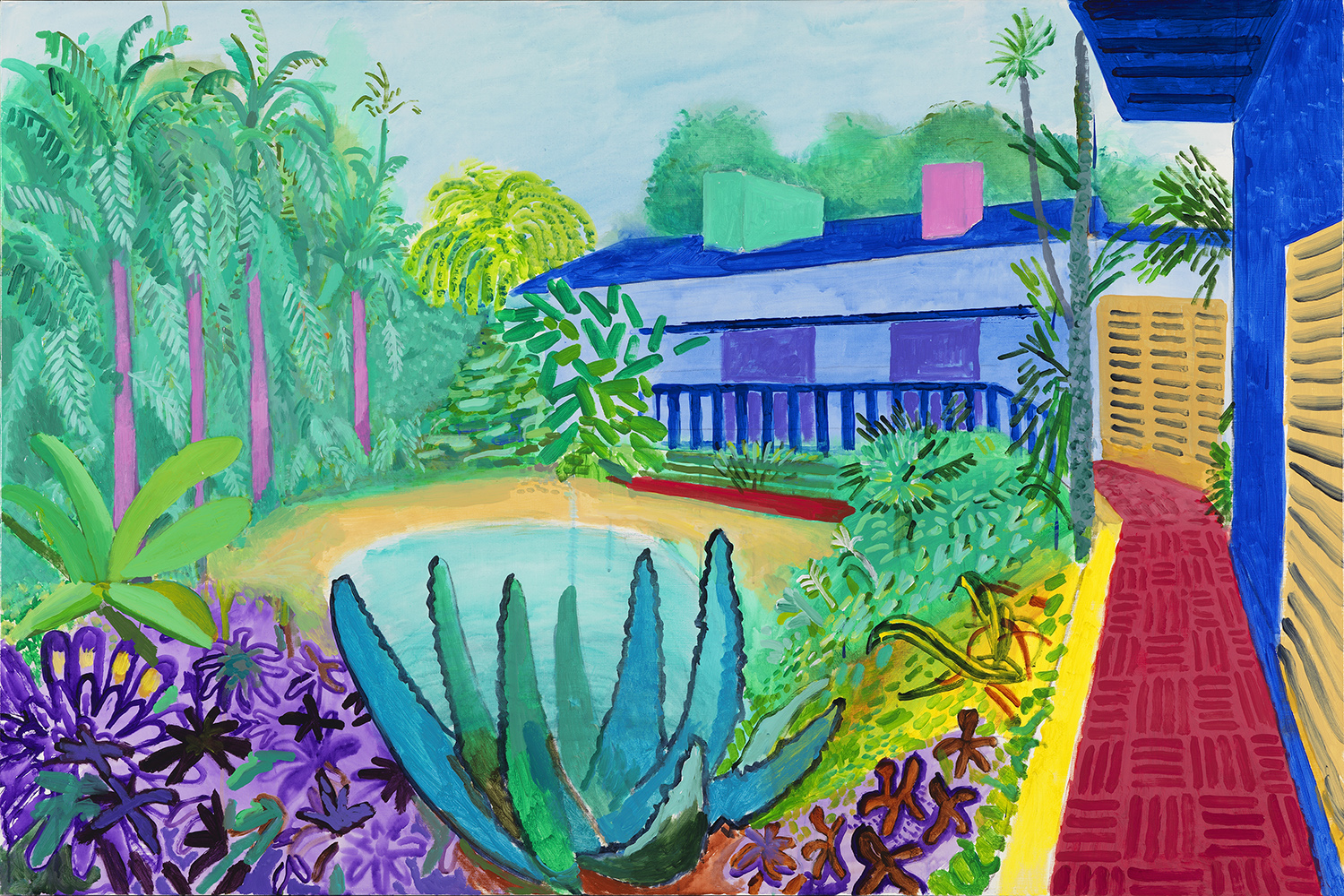
“Garden, 2015”
Acrylic on canvas
48 x 72″
© David Hockney
Photo Credit: Richard Schmidt
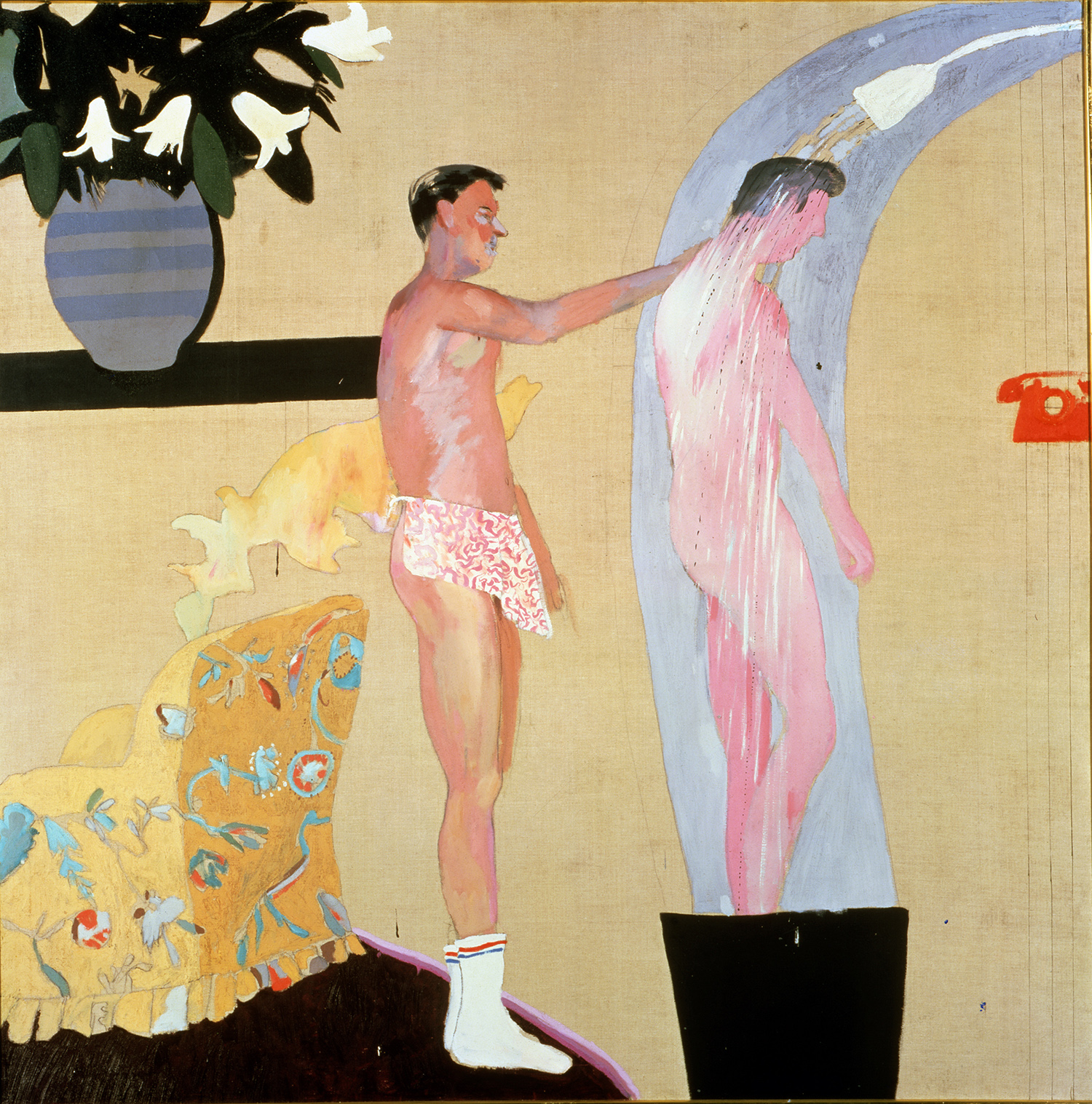
Domestic Scene, Los Angeles
1963
Oil on canvas
Private collection
© David Hockney
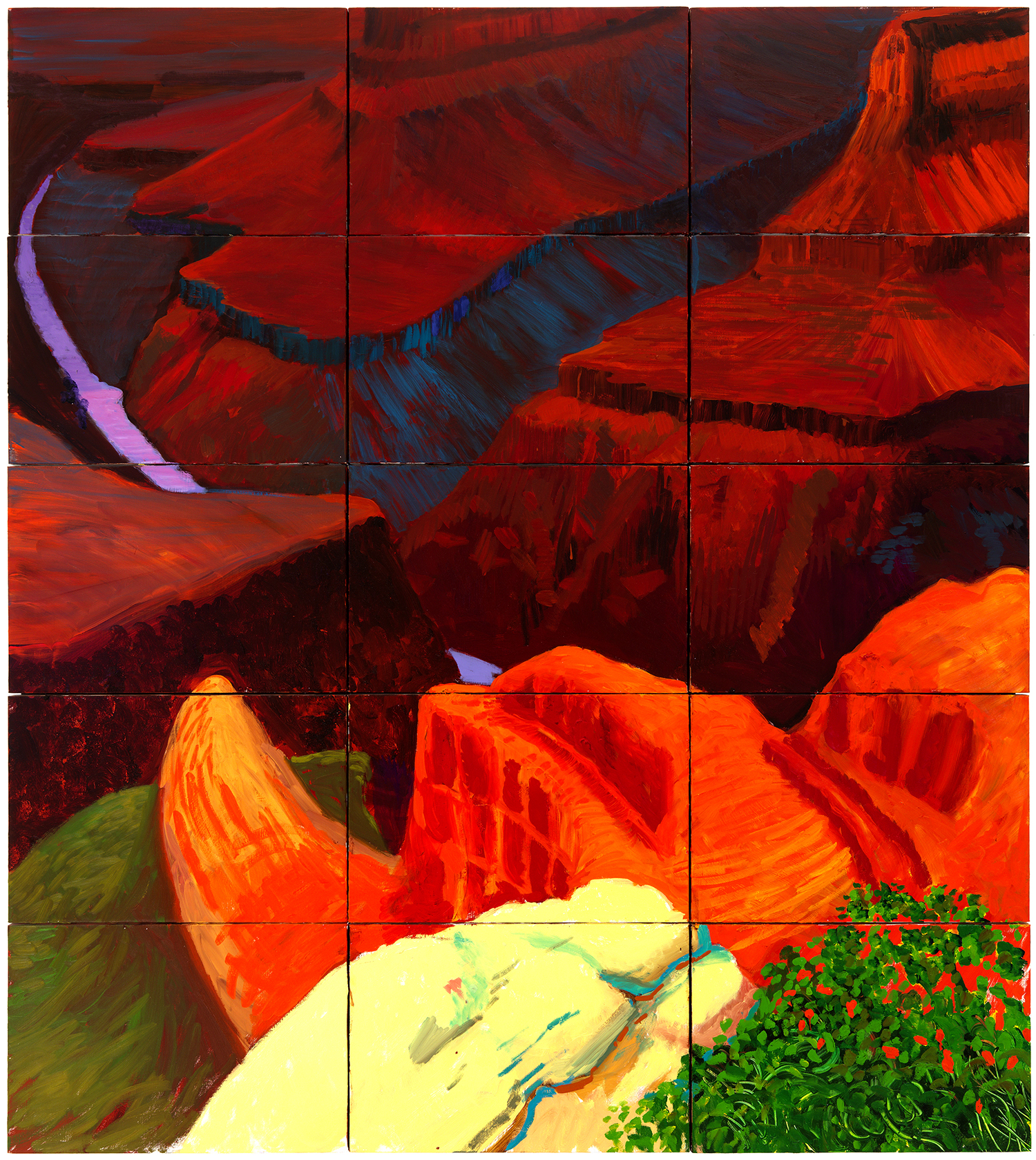
Colorado River
1998
Oil on canvas
Private collection, courtesy of Richard Gray Gallery
© David Hockney, Photo Credit: Tom Van Eynde
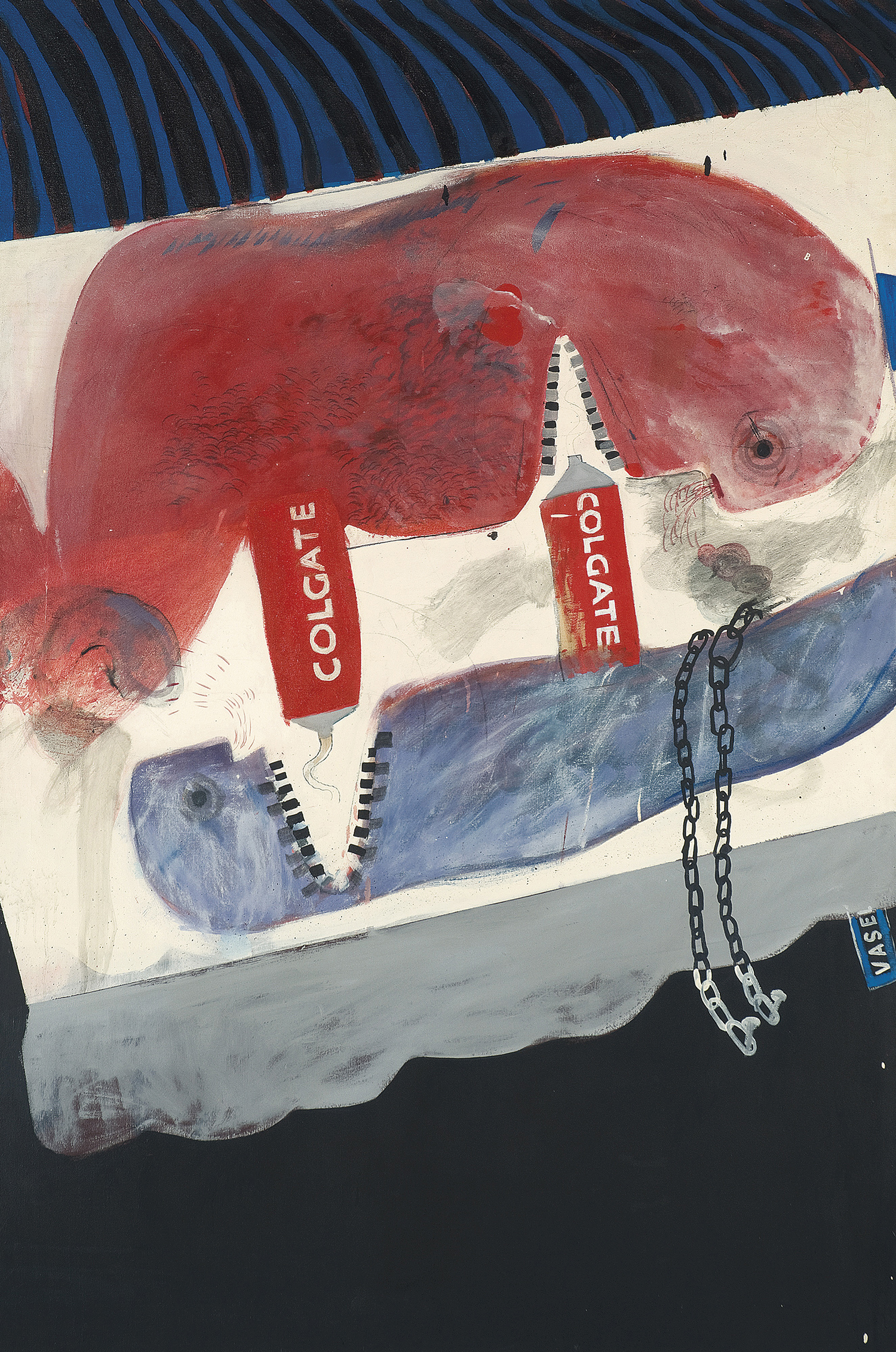
Cleaning Teeth, Early Evening (10 PM) W11
1962
Oil on canvas
Astrup Fearnley Collection, Oslo, Norway
© David Hockney
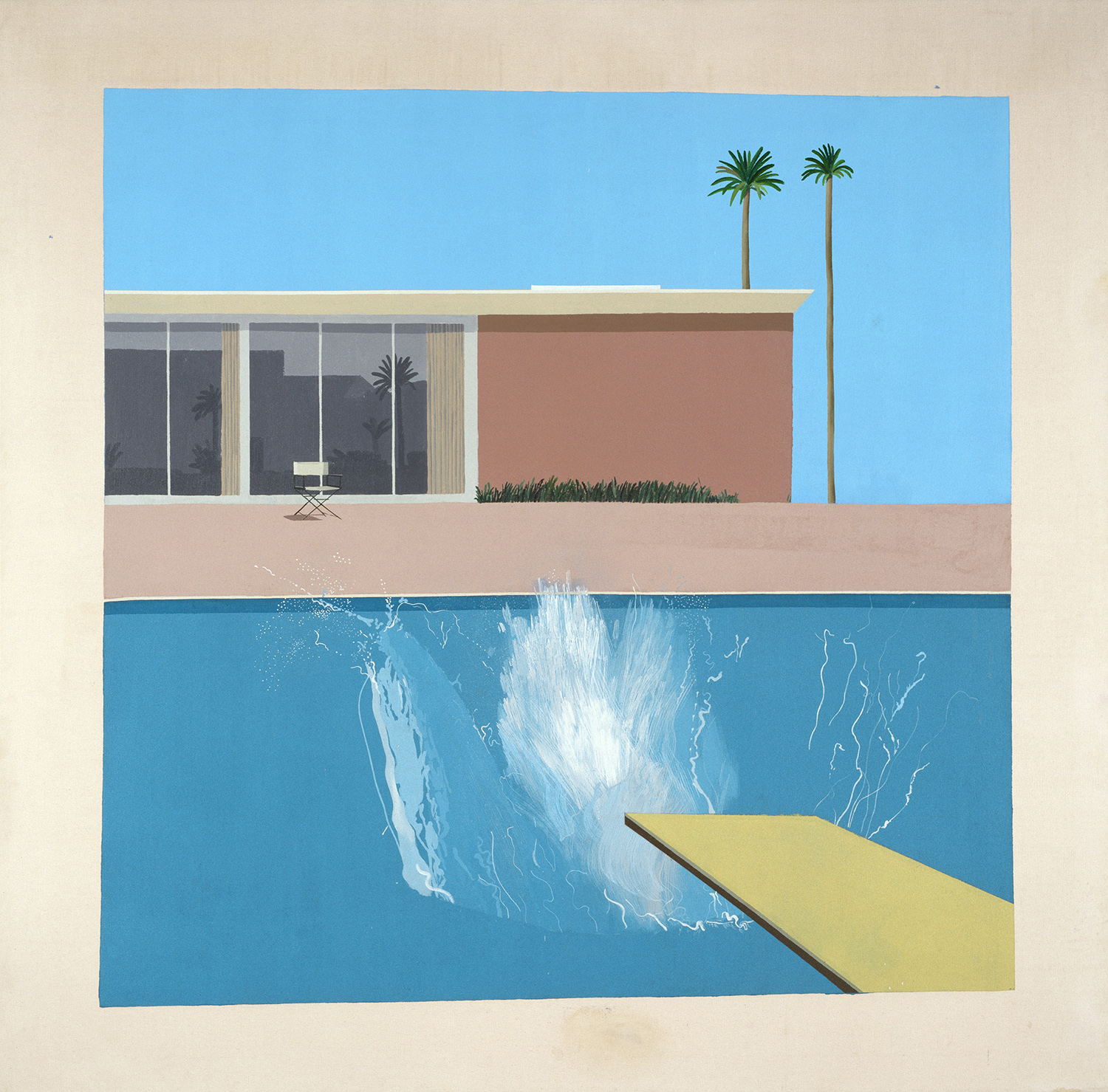
A Bigger Splash
1967
Acrylic on canvas
Tate, purchased 1981
© David Hockney, Photo Credit: ©Tate, London 2017
Exhibition Dates:
November 27, 2017– February 25, 2018
Exhibition Location:
Iris and B. Gerald Cantor Galleries,
Gallery 999
At The Met, David Hockney is curated by Ian Alteveer, Curator, with assistance from Meredith Brown, Research Associate, both in the Department of Modern and Contemporary Art.
The exhibition is made possible in part by The Horace W. Goldsmith Foundation, The Jay Pritzker Foundation, the Jane and Robert Carroll Fund, and the Aaron I. Fleischman and Lin Lougheed Fund. It is supported by an Indemnity from the Federal Council on the Arts and the Humanities. It is organized collaboratively by Tate Britain, London; the Centre Pompidou, Paris; and The Metropolitan Museum of Art, New York.
The exhibition is accompanied by a fully illustrated, scholarly catalogue published by Tate


No comments:
Post a Comment